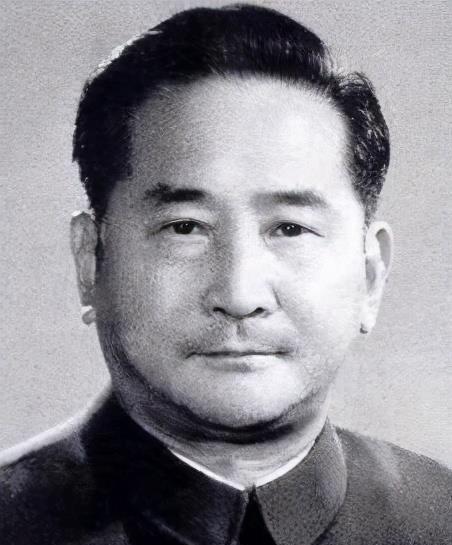When the title was conferred in 1955, the state stipulated that senior cadres who had left the army and served in other positions were not allowed to participate in the award. Han Nianlong, the political commissar of the 33rd Army, with his seniority and contributions to the country, could have been awarded the rank of major general. However, in a negotiation, Su Yu discovered his diplomatic talents and transferred him to the Ministry of Foreign Affairs, which made him regret missing the rank of major general, at first he felt that he had no experience and could not do a good job, but what he did not expect was that in the decades of diplomacy, his life created new glory and made more outstanding contributions than fighting wars.

In 1910, Han Nianlong was born in Renhuai, Guizhou, from an early age determined to fight for the revolutionary cause of the motherland for life, in 1929, he brought 200 pieces of ocean to Shanghai China Public School to study, during the school often organized students to carry out salvation movements, because of their excellent performance by the organization's attention.
His original name was Cai Renyuan, quite famous in shanghai underground work, many people call him "Old Cai", in the memoirs of the famous mainland dramatist Xia Yan, his name also appeared many times, which shows that his influence was relatively large at that time.
After joining our party, he organized and led the 60,000-strong Shanghai anti-Japanese strike in Shanghai, laying the foundation for promoting the formation of an anti-Japanese united front throughout the country. This hugely influential movement was highly affirmed by the Party Central Committee, and Chairman Mao personally issued a letter of encouragement.
As the anti-Japanese situation gradually deteriorated, Han Nianlong felt that the workers' movement alone could not save the country, so in 1938, he joined the anti-Japanese guerrilla group on Chongming Island in Shanghai, and in the subsequent military career, he successively served as the director of the political department of the ninth regiment of the third brigade of the first division of the New Fourth Army, the political commissar of the third column and the eighth detachment of the Jiangsu and Zhejiang Military Region of the fourth army, the director of the political department of the eighth column of the Central China Field Army, and the political commissar of the Thirty-third Army of Huaye.
On August 15, 1945, Japan announced its surrender, but the Japanese army in Gaoyou still chose to resist stubbornly, in order to let the Japanese army surrender as soon as possible, Su Yu decisively ordered the New Fourth Army to launch an offensive against the Japanese army in Gaoyou, and it took only half a day to capture Gaoyou.
The headquarters of the New Fourth Army chose Han Nianlong as its representative for the negotiations, and at the negotiating table, the Japanese army's Daisa, who was arrogant and blue-faced, said to Han Nianlong in an arrogant tone: "I want to see your highest negotiator." Han Nianlong was not intimidated by the momentum of the Japanese army Daisa, but looked at him sharply and said, "I am the supreme representative." ”
The Japanese army saw that Han Nianlong had a tough attitude and was no longer so arrogant, and said in a calm tone: "All our materials and equipment can be handed over to your army, but there is a condition that the weapons we carry with us cannot be handed over, because we still have to use it to defend ourselves on the road." “
How could Han Nianlong be fooled by him, sternly telling the Japanese army Daisa: "If you want to evacuate safely, you must surrender unconditionally, and nothing else can be done." Han Nianlong's words completely snuffed out the arrogance of the Japanese army, and the Japanese army began to pay tribute and laugh and began the following negotiations.
At that time, Su Yu disguised himself as an ordinary citizen and watched the whole process, and admired Han Nianlong's excellent negotiation ability.
After the founding of New China, the country needed talents from all walks of life, the Ministry of Foreign Affairs was no exception, under the recommendation of Su Yu, Han Nianlong was suddenly transferred to the Ministry of Foreign Affairs, at the beginning, Han Nianlong had no bottom in his heart, found Chen Yi, hoped that he would change people, Chen Laozong came up as soon as he heard the anger, and said to him: "Soldiers must obey orders, they will not be able to learn, you are a soldier, you should understand these truths." Han Nianlong saw that Chen Yi was angry, so he dismissed his idea of retreating.
After serving in the Ministry of Foreign Affairs, Han Nianlong's diplomatic talent was quickly revealed, he served as the Chinese ambassador to foreign countries in many countries, handled a lot of tricky things in his post, and later he made outstanding contributions in the two major historical events of Sino-Vietnamese negotiations and the normalization of Sino-US diplomatic relations, especially the normalization of Sino-US diplomatic relations, laying a deep foundation for the peaceful development and rise of China after that, although he missed the rank of major general, Han Nianlong's contributions were even greater than his contributions to the army to fight, and he was later very grateful for Su Yu's decision. If it weren't for him, he wouldn't have been his later self.
In 2000, Han Nianlong died at the age of 90, and his diplomatic career became the memory of a generation.